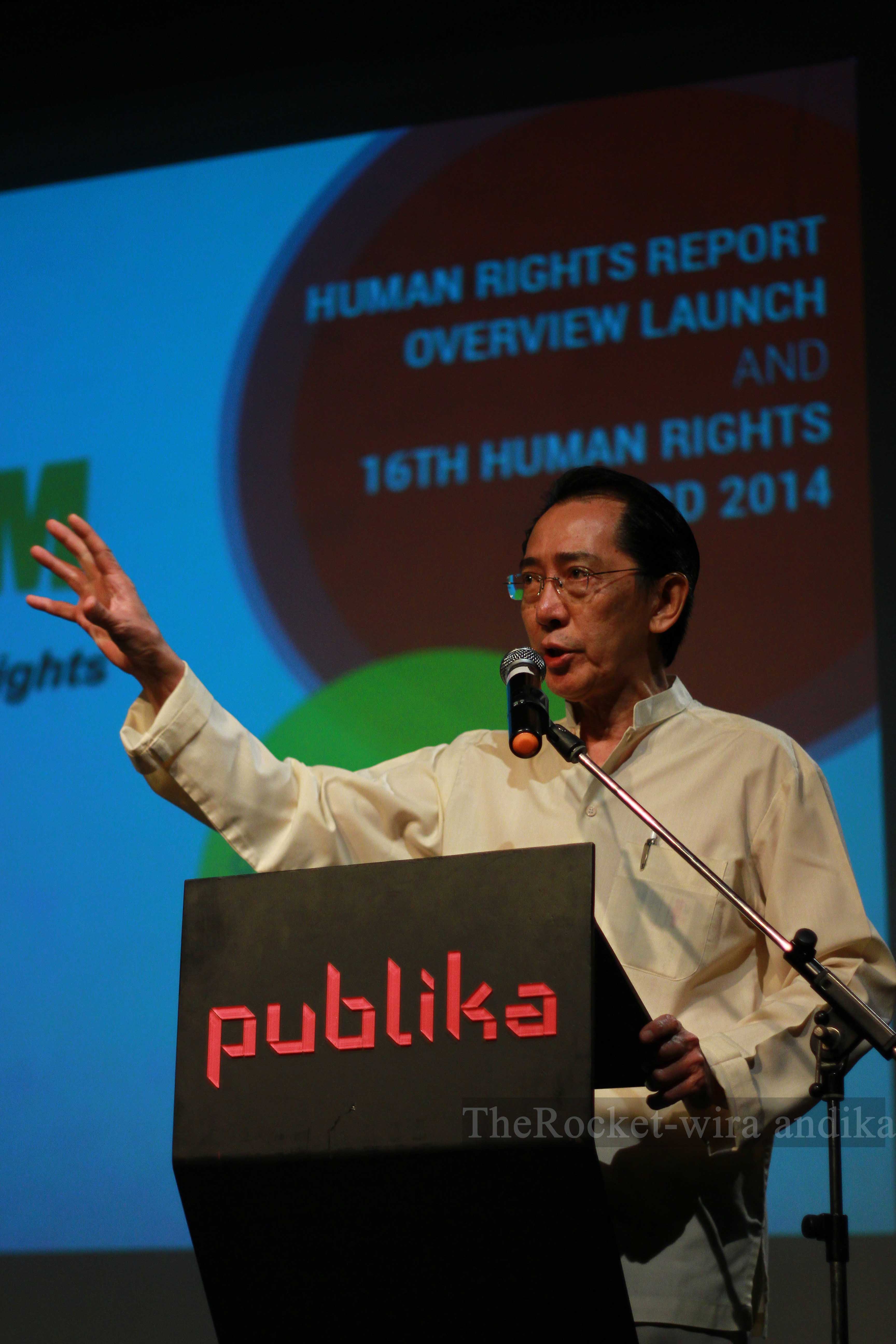 Suaram in its Human Rights Report overview has reached out to the majority of Malaysians, asking them to rise amidst the tightening grip of extremist fringe groups who Suaram says have “held ransom” the state of affairs of Malaysia in recent times.
Suaram in its Human Rights Report overview has reached out to the majority of Malaysians, asking them to rise amidst the tightening grip of extremist fringe groups who Suaram says have “held ransom” the state of affairs of Malaysia in recent times.
Highlighting six major trends the human rights group sees as worrying developments this year, Suaram called on Malaysians “who cherish human dignity and fundamental liberties, who value democracy, who treasure the richness of multi-ethnic, multi-religious and multi-cultural society, to rise up and speak out against human rights violations”.
The first and most jarring of issues brought to the fore, was the increase in racial and religious hate speech by right wing groups such as Perkasa and ISMA. Both groups have made clear their assertions of Malay racial superiority (ketuanan Melayu) over other races and have ticked of non Muslims with insinuations and threats.
Ibrahim Ali, President of Perkasa had defended his call to burn the Malay bibles, saying that it was done to restrict the propagation of Christianity amongst Muslims. When 300 over bibles were seized from the Bible Society of Malaysia earlier this year, the right wing group’s Negeri Sembilan chief Ruslan Kassim had threatened to behead four PAS MP’s who had proposed to reduce the powers of Selangor Islamic Religious Council’s (MAIS).
The four MPs in question were Khalid Samad (Shah Alam), Dr Siti Mariah Mahmud (Kota Raja), Dr Che Rosli Che Mad (Hulu Langat) and Hanipa Maidin (Sepang) who had spoken out against the bible confiscation by Selangor Islamic authorities. No action was taken against any Perkasa leader for threats directed at these MPs.
Suaram warned yesterday that if the government continued to keep mum about threats such at these, the undermining of religious freedom and racial equality would go out of hand and “destroy the social fabric of the multi-ethnic, multi-cultural and multi-religious society of Malaysia”.
Sedition Act used as a political tool
Secondly, the report added that aside from caving into right wing groups, Prime Minister Najib Razak had used the Sedition Act to stifle voices who had allegedly challenged the monarchy, Islam, the special position of Malays, the government and the judiciary. However, the human rights group believes that the 44 individuals charged were merely exercising their right to freedom of expression.
Academics too weren’t spared in the dragnet; Law Professor Azmi Sharom for instance, had given his opinion of the parallels between the Selangor MB crisis and the Perak constitutional crisis where the Sultans of both respective cases were key in changing the course of history in both states.
Latest to be hauled in by the colonial Act was Taman Medan assemblywoman Haniza Talha who had questioned why government subsidies had to be cut, while RM 711 million could be allocated to Permata, whose patron is Rosmah Mansor, the Prime Minister’s wife. Haniza who said that she was merely calling for more transparency in governments spending believes that probing her under the Act was harassment.
On the use of the Sedition Act, the Suaram report stated:
“The chilling effects of the Sedition Act have harmed freedom of expression, which is crucial for a functioning democracy.”
The other issues mentioned in the statement included the return of detention without trial; the failure of institutional reform for the police force; and the intimidation by the Home Ministry and the Registrar of Society on NGO’s such as Sisters in Islam, Sarawak Association for Peoples’ Aspiration (SAPA), Coalition of Malaysian NGOs in the UPR Process (COMANGO), Negara-ku.
Suaram also said that it was a disastrous year of non-citizens in Malaysia; where workers, migrants, refugees, and victims of trafficking were treated “terribly”. The US state Department’s Annual “Trafficking in Persons” Report saw Malaysia drop to tier three, and the “Global Rights Index: The World’s Worst Countries for Workers,” ranks Malaysia alongside Laos, Cambodia, Qatar, North Korea, and Zimbabwe. -The Rocket



